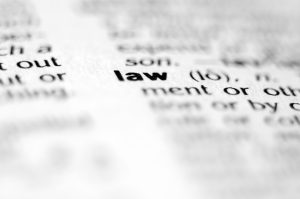
Indianapolis Criminal Defense Attorney 317-636-7514
On television, you are likely to see extravagant plots about fugitives running from the law and living out their lives happily-ever-after in a faraway place. But in real life, out-running the law is not a likely circumstance, nor the ideal option for dealing with criminal charges. However, in the rare case that criminal charges never catch up to a person, is it possible for their charges to be dropped if a long amount of time passes by? Continue reading for the answer.
Indiana Statutes of Limitations for Criminal Charges
In Indiana, there are statutes of limitations that outline the amount of time a prosecutor has to bring charges against a person after the commission of a crime. The length of time can depend on a variety of factors, but mostly depends on the severity of the criminal act. For example, time lengths can be extended if the state makes an error that results in a case being dismissed. In this case, the state must bring charges against the defendant within 90 days following the dismissal. Also, if a defendant is not a resident in the state or conceals evidence of their crime, statute of limitations can be extended.
After the commission of a crime, the state has so many years to charge a person for that crime. Below is a brief overview of these limitations.
Misdemeanor Crimes: 2 Years
Level 6 Felonies: 5 Years
Level 3, 4 & 5 Felonies (excluding sex crimes): 5 Years*
*Charges can be brought within 1 year of the state first discovering evidence through DNA analysis, or if they could have discovered evidence through DNA analysis with due diligence.
Level 1 & 2 Felonies: No time limitation. The state can bring charges against a person for as long as they are alive.
Murder: No time limitation. The state can bring charges against a person anytime regardless of how long it’s been since the victim’s death and the commission of the crime.
Sex Crimes: The state must bring charges against a person before their VICTIM turns 31 years of age.*
*Sex crimes include child molestation, statutory rape, child solicitation, vicarious sexual gratification, child seduction, incest, etc.
Forgery Crimes: 5 Years*
*Time lengths can be extended by the 3 factors mentioned earlier in the blog.
If You Have Been Charged With a Crime…
Since there are so many variables that can limit or extend the amount of time the state has to bring charges against you, it is best to consult with an experience criminal defense attorney for a better understanding of the Indiana criminal process. Not only can they properly navigate your case with your best interests in mind, they can help protect your rights and preserve your freedoms.

David E. Lewis Attorney at Law 317-636-7514
is an
Indianapolis criminal defense lawyer with decades of experience defending those facing criminal charges. Call our law firm today at
317-636-7514 to schedule a free initial appointment to discuss your case and begin developing a plan to protect yourself. Your best chance at avoiding the maximum penalties for your charges is to hire an aggressive criminal attorney that knows the system. David E. Lewis is that attorney that will work around the clock fighting to defend your case! Call 317-636-7514 to learn more about criminal law in Indiana, and your options as someone facing
criminal charges in Indiana.







